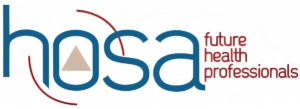You no doubt have a reason for joining HOSA and entering the world of health. We all do. For many, an experience from the past makes such an impression on them that they decide to commit their lives to healthcare. Others (including yours truly) initially discover health careers based on their academic skills & interests. As students become interested in these careers and begin to lay the groundwork for their health education, they learn more about what it means to be a health professional. As a high schooler, I built upon my limited experiences with healthcare by volunteering and participating in HOSA. As a college student, I began to shadow professionals and take courses that dealt directly with medical science and ethics. As a medical student, I will of course learn firsthand what it feels like to be a physician. What I find interesting is that amidst all this formal exposure to health careers, Future Health Professionals (and indeed everyone) receive indirect exposure to medicine by way of the media. How does this exposure affect us? How might it affect our patients?
ER. General Hospital. Grey’s Anatomy. Famous names with famous (fake) doctors, nurses, and hospital staff. It’s not limited to hospitals, either. Show like The Biggest Loser and The Vet Life also purport to show health professionals at work (and in fact do – in the case of the last two, the health professionals are real). But while we know that these stories aren’t real or in the case of reality shows are only partly real, we still love to watch them. I’m sure that every HOSA member has a friend who can’t get enough of a medical drama. It’s compelling stuff. Who hasn’t been inspired by the transformation of somebody who has undergone gastric bypass surgery on a TLC show? Who hasn’t imagined themselves exiting surgery having just saved somebody’s life like a nurse on NY Med? As future health professionals, we should be excited about stepping into this incredibly interesting world. It doesn’t hurt to fantasize a bit with the good people of ABC or NBC about what that might be like. But to allow those portrayals to affect what we do with our lives goes too far. The day to day life of a veterinarian looks almost nothing like the script of a reality show. General Hospital is only open for one hour each day – trust me when I tell you that the darkened, empty corridors of that soundstage are far removed from those of an actual hospital at 2am. George Clooney will not be your attending. Ever.
I’m not here to complain about depictions of health and healthcare on TV. It truly makes for great entertainment because it’s a world that the average person doesn’t often see. As a Future Health Professional, you either already know what actually caring for people’s health is like or you will soon find out. What’s more interesting is how these depictions can affect your career by way of your patients. These days, every patient arrives with preconceived notions of what their care should look like. They might expect tests to take a matter of minutes. They might plan to be at dinner in 30 minutes. They might have even diagnosed themselves on WebMD. As health professionals, it will be our job to manage these often unrealistic expectations and still do our jobs as usual. I recently watched an episode of Grey’s Anatomy in which three doctors, one of whom was a pediatric dentist (the other two were ex-lovers who took every opportunity to snipe at one another), drained a brain bleed on a turbulent aircraft with a cocktail straw. I would say that you can’t make this stuff up, but somebody actually did. We know that situations like that are impossible, but the average person may not. Health care is incredibly complex, and your patients will not have access to every bit of esoteric knowledge that you learn in the health pathway of your choice. We are in the minority here. Even though obviously absurd scenarios may not fool many people, they can still, over time, have an effect on what patients think that health professionals can do.
The health industry is constantly changing. Medicine’s portrayal in popular culture may look entirely different in a few years. Talks shows like Dr. Oz and The Doctors weren’t around ten years ago to give (sometimes dubious) information. The internet’s effect on medicine is at this point probably even greater than television’s. My point here is that we must be sensitive to how our patients view what we do. The easiest way to ensure that your patients receive the best health information possible is to communicate with them. Bedside manner is more important than ever in an era in which a computer can diagnose illnesses based on input symptoms. As a health professional, you can filter the media out for your patients. Unlike actors on TV or spokespeople selling supplements online, your business isn’t to sell your patient anything specific or to consume their attention. It’s to champion their health by providing excellent care and effectively communicating with them so that they, too, can be an active part of their healthcare team. Make that job easy for them, and maybe the media won’t make yours so hard after all.


